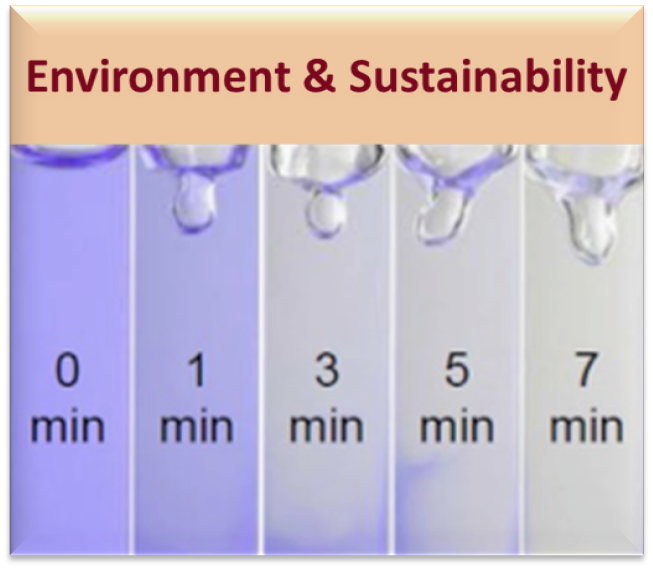
The scope of potential applications of plasma-chemical processes continuous to increase, covering novel green chemical processes, sustainable agriculture, water treatment and decontamination. Low temperature plasmas can contribute to a variety of environmental needs. Ozonization processes are used for water treatment and new plasma treatment approaches are being explored for water treatment including the mitigation of pharmaceuticals and forever chemicals (PFAS). Plasmas can also be used to treat raw agriculture products such as seeds as well process agriculture waste products. Plasmas can also be employed in automobiles to reduce pollution from normal fossil fuel by "reforming" the fuel before it is burned, breaking it down, burning down into cleaner-burning chemicals.
The use of low-temperature plasmas for chemical conversion of the greenhouse gases has a rich history. The removal of NOx in lean-burn engine exhaust remains one of the most challenging issues for automotive emission control systems in the coming decade. The catalytic processes currently being used are not effective at the low temperatures (i.e. cold start). Recently, non-thermal plasma (NTP) catalytic processes for the abatement of emissions in automotive exhaust gases have attracted much attention as they allow to drive reactions at near ambient temperature.
Our focus is to understand the mechanisms involved in the plasma catalysis coupling and plasma-liquid interactions that enable new plasma applications to contribute to a more sustainable society.
Further reading:
- Du, Yanjun, et al. "CO (B 1 Σ+→ A 1 Π) angstrom system for gas temperature measurements in CO 2 containing plasmas." Plasma Chemistry and Plasma Processing 37 (2017): 29-41.
- G. Nayak, J. Wang, R. Li, D. Aranzales, S. M. Thagard, P. J. Bruggeman, Plasma. Process. Polym. 2023, e2200222. https://doi.org/10.1002/ppap.202200222
